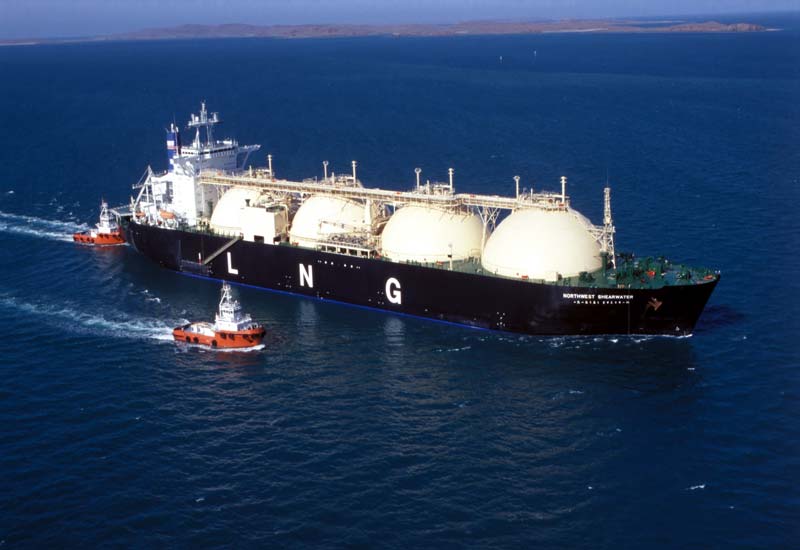Cooking Gas Price Hits N5,000
The inability of a vessel carrying Liquefied Petroleum Gas, popularly known as cooking gas, to berth and discharge in Lagos has caused the price of the product to soar to N5,000 per 12.5kg.
The price of the product had jumped to N4,500 per 12.5kg last week from between N3,200 and N4,000, even as the scarcity of kerosene, used by many Nigerians for cooking, continues to bite.
Our correspondent gathered on Tuesday that Gaz Providence, which is the only vessel delivering LPG in the domestic market, had been stranded on Lagos waters for over 10 days due to lack of berthing space at the North Oil Jetty in Apapa.
The vessel could not berth because another vessel discharging aviation fuel had yet to leave the berthing space, as it had not been able to offload the remaining 1,000 metric tonnes of the product for three days.
The Nigerian National Petroleum Corporation has three jetties, namely: Petroleum Wharf, BOP and North Oil Jetty, used by vessels to discharge petroleum products at Apapa.
Our correspondent gathered that only the NOJ had facilities to discharge cooking gas, apart from a private jetty owned by Navgas, also in Lagos.
Checks by our correspondent showed that the price of a 12.5kg cylinder of cooking gas had increased to N5,000 as a result of the logistic challenge, which had lingered for years.
The President, Nigerian Association of Liquefied Petroleum Gas Marketers and Managing Director, Second Coming Gas Limited, Mr. Basil Ogbuanu, confirmed to our correspondent that the stranded vessel came in with about 10,000 metric tonnes of cooking gas.
He said, “But it has not been able to discharge because there is no space for it to berth. I assure Nigerians that as soon as that vessel berths, the price will return to N4,000. Whatever the price is today, above N4,000 is artificial.
“The only company that has a private jetty to receive gas is Navgas, and that is why they are receiving as I am speaking to you. The vessels that are discharging in Navgas now are imported.”
The National Chairman, Liquefied Petroleum Gas Retailers, a branch of the Nigeria Union of Petroleum and Natural Gas Workers, Mr. Chika Umudu, decried the continued arbitrary increment in the prices of LPG and supply shortages.
He said in a statement on Tuesday that the crisis, which began around July 2016, had intensified and undermined the expected development of the LPG sector in the country.
Umudu said, “As a result, Nigerians, especially the low-income earners who are beginning to adapt to LPG, have been subjected to hardship since December last year.”
The situation has just worsened this year, forcing many users to abandon their cylinders and opt for other sources such as firewood and kerosene.
“The price of 12.5kg of the product has risen from N3,500 in early December 2016 to N5,000 within Lagos State and neighbouring communities of Ogun State and parts of Oyo State. Within the same period in other parts of the country, the price has risen from between N4,000 and N4,500 to between N5,500 and N6,500.”
Ogbuanu also said dealers across the country had been at the receiving end of the crisis and were almost out of business as they struggled to cover their rising cost price.
The LPGAR president said, “LPG retailers have to contend with end users who often accuse them of being responsible for the price increment. Unknown to most of the end users, our members are the worst hit as they have been reduced to the status of mere agents toiling day and night to make LPG available to Nigerians with little or no profits.
“Our union has since the middle of last year decried what it views as the manipulation of the sector by few privileged individuals in Nigeria. Now, the supply is not adequate and the pricing system is determined by the privileged few who have succeeded in hijacking the system.”

 Billionaire Watch3 weeks ago
Billionaire Watch3 weeks ago
 Startups4 weeks ago
Startups4 weeks ago
 News4 weeks ago
News4 weeks ago
 News4 weeks ago
News4 weeks ago
 Bitcoin4 weeks ago
Bitcoin4 weeks ago
 Naira4 weeks ago
Naira4 weeks ago
 Forex3 weeks ago
Forex3 weeks ago
 Treasury Bills4 weeks ago
Treasury Bills4 weeks ago

























